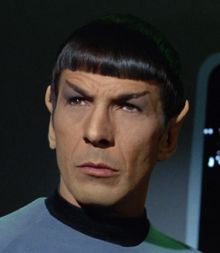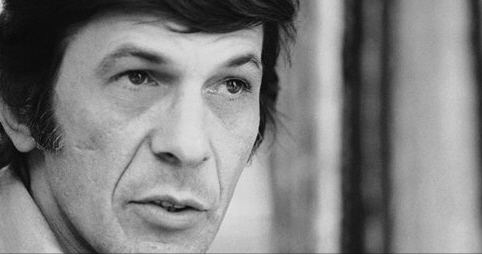In the post-World War II era, science had gone from being a well-respected endeavor to being 'mad'. This was after Harry Harlow's monkey isolation experiments, after LSD on unwitting subjects, after the atomic bomb and after the forced sterilization of 60,000 people under the label of science.
A few movies in the 1950s still had scientists as heroes, but only after some other scientist had created a radioactive monster because he was tinkering with nature. Even in comic books, science was bad. Bruce Banner was mucking around with atomic bombs in clearly uncontrolled experiments, Reed Richards was so unhinged he took his closest friends into space without proper shielding. Sloppy protocols allowed a radioactive spider to bite Peter Parker and the atomic age was giving birth to mutant children that scientists would want to dissect.
Dr. Doom, Marvel's greatest villain, was a scientist.
Then along came Spock. He was not swayed by anti-communism, racism or greed, unless his unscientific human nature was drawn out. He was rational, he was cold, he was...scientific. Yet prior to Spock, that was not the image of scientists. Scientists were kooky and anti-social, hidden in the bowels of companies where no one asked what they did and no one let them talk to the world. Professor James Watson has gotten a bad rap recently for saying things that have been a little wacky, like fine minds such as Lynn Margulis and Linus Pauling did as they aged, but prior to Spock bizarre beliefs were the norm for how people perceived scientists.
 |  |
Compare that to today - Spock is so ingrained in our culture that scientists are expected to coldly and rationally present facts and studies while enemies of science ask where their funding comes from and insist they are in cahoots with Big Vaccine or Big Global Warming. Any time a science writer speaks plainly about the craziness of some bizarre assertion, the objection is not to the facts but rather that 'scientists should not be insulting'.
Well, why?
Because Spock did not, that is why. And his method acting for future scientists worked, he changed how we see scientists. He made science cool. What was once a somewhat thankless occupation is now widely respected in our culture, and that has seeped into every aspect of our lives. America has led the world in Nobel prizes, science output and adult science literacy in the post-Spock era.
Mr. Spock was not representing what Gene Roddenberry thought scientists were, he was a guy who had written morality plays as westerns before writing morality plays as space westerns - Spock was instead Leonard Nimoy representing what society wanted scientists to be.
Leonard Nimoy died this morning at his home in Los Angeles. He was 83. Rest in Peace.
And Godspeed, Mr. Spock.





Comments